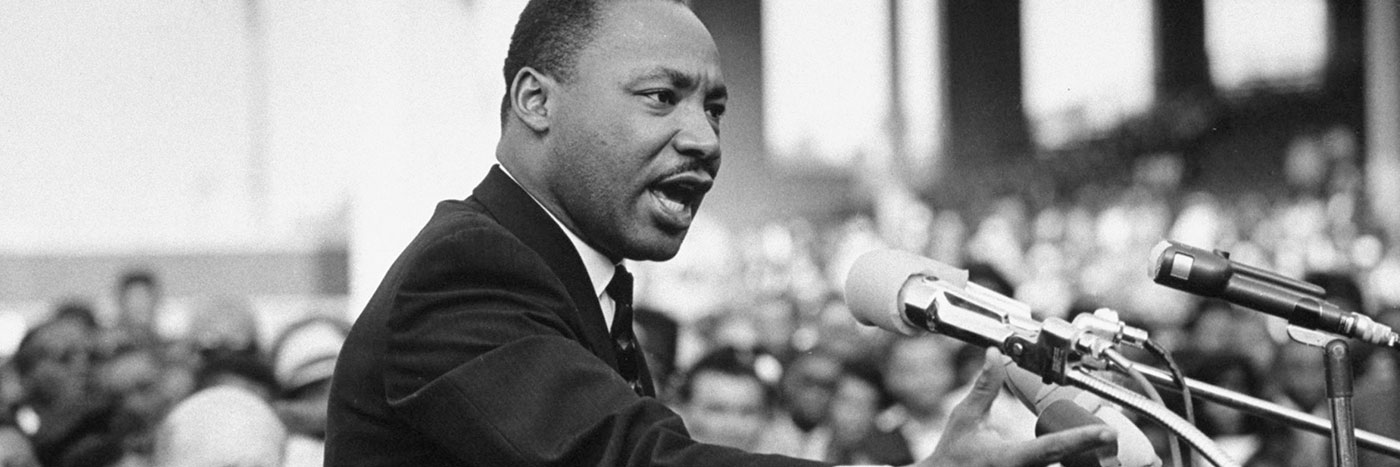Each year we honor the incredible life and sacrifice of Martin Luther King Jr. The way he spoke on human dignity and fought for justice and equality transformed our nation. Reflecting on this remarkable man leads me to ask: What made his work so effective? And what can the pro-life movement learn from his legacy?
While the pro-life movement and the civil rights movement are clearly not the same, they have distinct parallels. There is a theological parallel. Both movements are rooted in the truth of God, understanding that humanity’s immense value is founded in scripture, that all humans are made in God’s image. They rebuke the marginalization of the vulnerable and call it what it is: sin. There is also a political parallel. Both appeal to the Founders who “held these truths to be self-evident, that all men are created equal, that they are endowed by their creator with certain unalienable rights,” such as life, liberty, and the pursuit of happiness.
With the commonalities between the movements, Christians who work to end abortion can learn a great deal from Dr. King. Perhaps the most significant lesson is that we, as God’s people, cannot be lukewarm when it comes to injustice.
Letter From Birmingham Jail
A seminal place to glean Dr. King’s wisdom on this topic is from his “Letter From Birmingham Jail.” Dr. King composed this open letter in April 1963 after being arrested during a nonviolent protest. He wrote it in response to white Birmingham clergymen who asked Dr. King to show more patience and allow justice to develop slowly.
In this letter, he shared his deep frustration about those who were lukewarm on civil rights.
He wrote:
“I have almost reached the regrettable conclusion that the Negro’s great stumbling block in the stride toward freedom is not the White Citizen’s Council-er or the Klu Klux Klanner, but the white moderate who is more devoted to “order” than to justice; who prefers a negative peace which is the absence of tension to a positive peace which is the presence of justice…Shallow understanding from people of goodwill is more frustrating than absolute misunderstanding from people of ill will. Lukewarm acceptance is much more bewildering than outright rejection.”
Dr. King was particularly disappointed to see this lukewarm attitude from faith leaders. He wrote about their silence:
“So here we are moving toward the exit of the twentieth century with a religious community largely adjusted to the status quo, standing as a tail-light behind other community agencies rather than a headlight leading men to higher levels of justice.”
He tried to push the Church away from apathy and instead toward just actions. He said in the letter:
“We will have to repent in this generation not merely for the vitriolic words and actions of the bad people, but for the appalling silence of the good people. We must come to see that human progress never rolls in on wheels on inevitability. It comes through the tireless efforts and persistent work of men willing to be co-workers with God.”
How Dr. King’s Words Align With the Pro-Life Movement’s Challenges
Many Christians say they are pro-life, but they speak and act like the moderates Dr. King warned us about.
They make claims like…
“I’m personally against abortion, but I can’t tell a woman what to do.”
“Abortion should be limited to only the first trimester.”
“We should wait to end abortion until we have a social safety net to care for families.”
“Abortion is wrong, but we can’t legislate morality.”
“Abortion will always be a reality because we live in a fallen world, and nothing we can do will change that.”
While saying they affirm life, their words and actions lack urgency, aggression, and allow for the killing of more children. They epitomize Dr. King’s statement: “Lukewarm acceptance is much more bewildering than outright rejection.”
These men and women ignore the fact that 3,000 human beings in America are killed unjustly each day because of abortion. They don’t understand how abortion hurts women, with many battling the physical and emotional traumatic effects for the rest of their lives.
Their lukewarm behavior perpetuates the injustice, ensuring that the preborn will continue to be considered lesser than those outside the womb. Sadly, the barriers they create keep us from saving the lives of the innocent and protecting their mothers from harm.
That’s why we need to follow Dr. King’s example by rejecting moderation and a lukewarm position. We must be, as Dr. King described, “a headlight leading men to higher levels of justice.” We should use our voices to speak for the preborn, realizing that abortion can end “through the tireless efforts and persistent work of men willing to be co-workers with God.”
We need to consider what Dr. King would say about us, asking ourselves: Am I lukewarm on abortion?
We as the Body of Christ need to be “extreme,” a label people used to describe Dr. King – and one he grew to appreciate.
He wrote in the letter,
“Was not Jesus an extremist in love…was not Amos an extremist in justice…was not Paul an extremist for the gospel of Jesus Christ…So the question is not whether we will be extremist but what kind of extremist will we be. Will we be extremists for hate or will we be extremists for love? Will we be extremists for the preservation of injustice – or will we be extremists for the cause of justice?”
My prayer is that those of us who proclaim Christ will read Revelation 3:14-22 and reject moderation and a lukewarm position on abortion. We do not wish for the Lord to “spit us out of His mouth” because of our ambivalence.
May we instead follow Dr. King’s example in being “extreme” in our advocacy for justice and our love for the most vulnerable, the baby in the womb. Let’s be winsome, candid, peaceful, compassionate, urgent, aggressive, and vocal.
But let’s not be silent.
Reference: View Dr. King’s Letter
